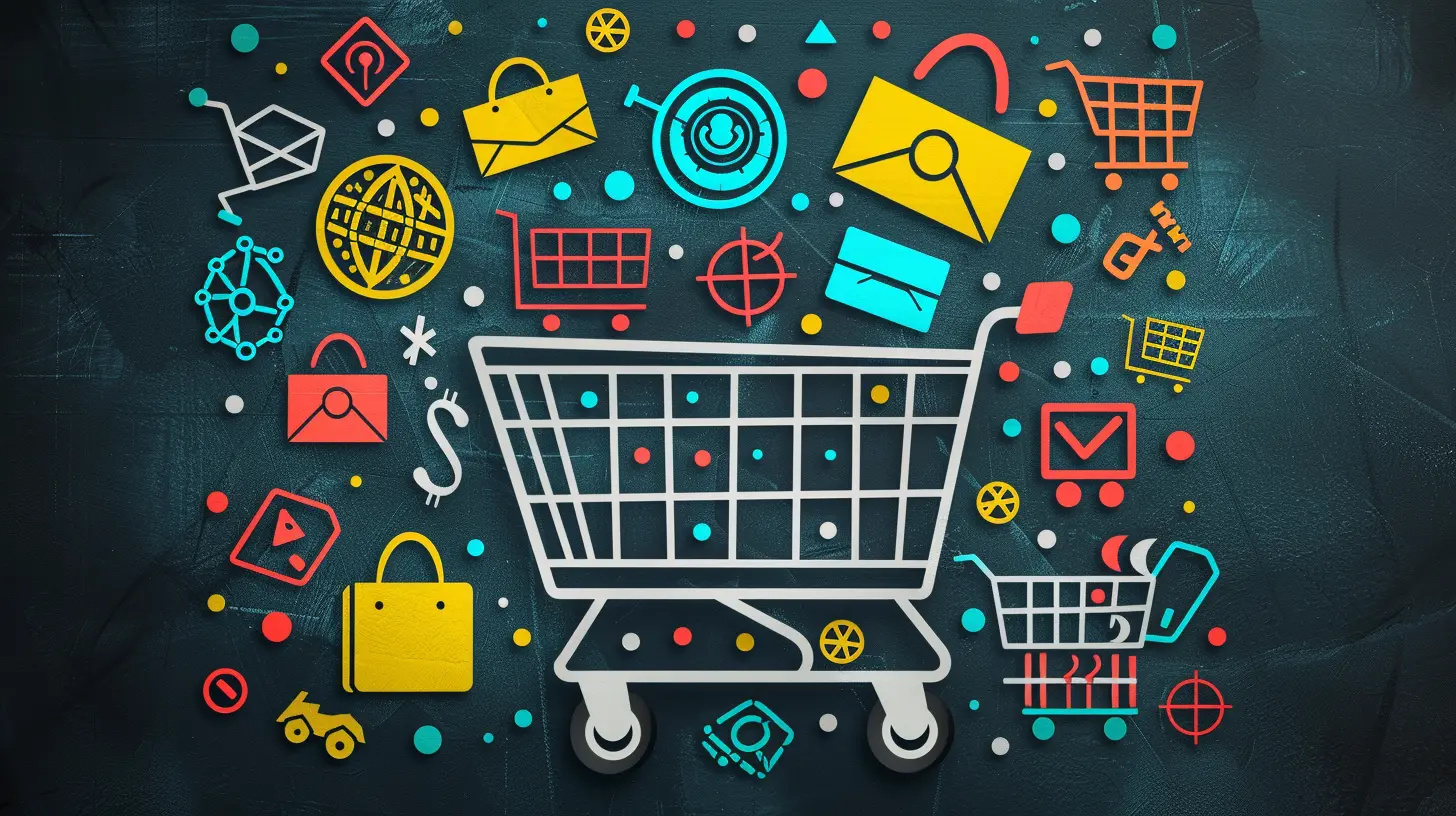Exploring Ethical E-Commerce and Consumer Trust
27 May 2025
In today's digital marketplace, e-commerce is booming. With just a few clicks, we can order anything from groceries to designer clothing. But behind the convenience, there's a growing concern—how ethical are these e-commerce businesses? And more importantly, how much do consumers really trust them?
As shoppers become more conscious of sustainability, fair trade, and ethical labor, companies are being forced to rethink their business practices. But is ethical e-commerce just a trend, or is it the future of online shopping? Let’s dive in and uncover the truth. 
What Is Ethical E-Commerce?
Ethical e-commerce refers to online businesses that prioritize ethical business practices, sustainability, and consumer well-being. This includes:- Fair labor practices – Ensuring that workers receive fair wages and work in safe conditions.
- Sustainable sourcing – Using eco-friendly materials and reducing environmental impact.
- Transparency – Being open about product origins, pricing, and business ethics.
- Consumer privacy – Protecting customer data from misuse and cyber threats.
Shoppers today are smarter—they read labels, check certifications, and research brands before making a purchase. This shift in consumer behavior is putting pressure on brands to be more responsible. 
The Link Between Ethical E-Commerce and Consumer Trust
Trust is the foundation of any business. If customers don’t trust a brand, they simply won’t buy from it. In the e-commerce world, ethical business practices play a critical role in building and maintaining consumer trust. But why?1. Transparency Builds Loyalty
Customers value honesty. When a company openly shares product details, supply chain information, and the impact of its business, it creates a sense of trust. Brands like Patagonia and Everlane thrive on transparency, winning customer loyalty through ethical sourcing and fair wages.2. Sustainability Matters More Than Ever
Sustainability isn’t just a buzzword anymore—it’s a demand. Consumers are actively looking for eco-conscious brands that minimize waste, carbon footprints, and unethical manufacturing. When a company aligns with these values, it gains a competitive edge.3. Ethical Practices Prevent Brand Scandals
Remember when fast-fashion giant H&M was accused of greenwashing—misleading customers about their sustainability efforts? Consumers don’t forget. Ethical e-commerce prevents such scandals by ensuring brands walk the talk instead of just making empty promises.4. Data Privacy Strengthens Brand Integrity
With rising concerns about data breaches, customers are wary of how their personal information is handled. Ethical businesses prioritize security, invest in encryption, and never misuse customer data—earning their trust in the long run.
Challenges in Ethical E-Commerce
While ethical e-commerce sounds great in theory, it’s not without its hurdles. Companies, especially startups, often struggle with the financial and logistical challenges of maintaining ethical standards.1. High Costs of Ethical Sourcing
Ethical labor and sustainable sourcing come at a price. Unlike cheap mass production, fair wages and eco-friendly materials increase costs, making it difficult for small businesses to compete with industry giants.2. Greenwashing Concerns
Many brands claim to be "sustainable" or "eco-friendly" without actually making meaningful changes. This phenomenon, called greenwashing, deceives consumers and damages the reputation of ethical e-commerce.3. Convincing Customers to Pay More
Let’s be honest—most consumers still prefer affordability over ethics. While some shoppers willingly support ethical brands, others hesitate because ethical products often come with a higher price tag.4. Supply Chain Transparency Issues
Some companies genuinely want to be ethical but struggle with tracking their supply chains. If a supplier engages in unethical practices without the brand’s knowledge, it can lead to unintended violations of ethical standards.
How E-Commerce Brands Can Build Consumer Trust
Earning consumer trust isn’t an overnight process—it requires continuous effort and commitment. Here’s how e-commerce brands can establish themselves as ethical and trustworthy:1. Embrace Radical Transparency
Brands like Everlane set the bar high by revealing the true cost of their products, from raw materials to labor. Showing customers exactly where their money goes fosters trust and appreciation.2. Obtain Ethical Certifications
Certifications such as Fair Trade, B Corp, and Rainforest Alliance assure customers that a brand meets ethical standards. These badges of honor provide credibility and reinforce consumer trust.3. Educate Consumers on Ethical Shopping
Many consumers care about ethics but lack awareness. Brands that educate their audience—through blogs, social media, and videos—about sustainable shopping habits can position themselves as thought leaders in ethical e-commerce.4. Implement Ethical Marketing Strategies
Avoid deceptive advertising tactics. Instead, focus on storytelling, customer testimonials, and authentic branding to connect with consumers on a deeper level.5. Strengthen Data Privacy Measures
Ethical e-commerce isn’t just about sustainability—it’s also about protecting consumer data. By being transparent about data collection policies and offering secure payment options, brands can build lasting credibility.The Future of Ethical E-Commerce
With increasing consumer awareness and global sustainability initiatives, ethical e-commerce is more than just a passing trend—it’s gearing up to reshape the industry. But where are we headed?- AI and Blockchain for Transparency: Blockchain technology can verify product origins, preventing greenwashing and unethical practices. AI can optimize logistics for a more sustainable supply chain.
- Rise of Circular Economy: Brands will adopt recycling, upcycling, and buy-back programs to reduce waste.
- Regulations and Compliance: Governments worldwide will impose stricter regulations to ensure ethical business practices.
- Consumer-Driven Change: Ultimately, shoppers have the power. The more they demand ethical practices, the more pressure brands will feel to comply.
Ethical e-commerce isn't just about doing what's right—it’s about survival in a world where consumers hold brands accountable. Companies that fail to adapt will struggle, while those that embrace ethical practices will thrive.
Final Thoughts
Ethical e-commerce and consumer trust go hand in hand. As shoppers demand more honesty, sustainability, and fairness, businesses must step up or risk losing credibility. While challenges exist, brands that prioritize ethics and transparency will build lasting relationships with their customers.Trust isn’t built overnight—it’s earned through consistent, ethical actions. Businesses that embrace this will not only gain loyal customers but also contribute to a more responsible and sustainable future.
What do you think? Have you ever supported an ethical brand, or do you struggle to find trustworthy companies? Let’s discuss in the comments!
all images in this post were generated using AI tools
Category:
E CommerceAuthor:

Adeline Taylor
Discussion
rate this article
3 comments
Marni Maddox
Great insights on ethical e-commerce! Building consumer trust through transparency and responsibility is essential. It's encouraging to see more brands prioritizing ethics in their business models. Looking forward to further developments in this space!
June 15, 2025 at 2:56 AM

Adeline Taylor
Thank you for your feedback! I'm glad you found the insights valuable. It's exciting to see the growing commitment to ethics in e-commerce. Let's continue to support these positive changes!
Zanya Whitaker
This article provides a thoughtful examination of the intersection between ethical e-commerce and consumer trust, highlighting important challenges and opportunities for businesses in today’s digital marketplace.
June 2, 2025 at 4:45 AM

Adeline Taylor
Thank you for your insightful comment! I'm glad you found the examination of ethical e-commerce and consumer trust valuable. Your feedback is much appreciated!
Storm Lynch
Ethical e-commerce is not just a trend; it's the future. Building consumer trust through transparency and accountability is essential for businesses to thrive. Companies that prioritize ethics will lead the way in a rapidly evolving digital marketplace.
June 1, 2025 at 4:21 AM

Adeline Taylor
Absolutely! Ethical e-commerce is crucial for fostering trust and ensuring sustainable business practices. Prioritizing transparency will not only enhance consumer loyalty but also shape the future of the marketplace.



